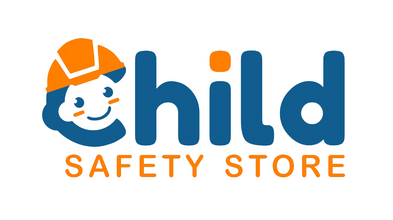
Camp Safety for Kids
Hey there, parents! Summer is here, so let’s talk about camp safety for kids. Obviously, many folks are probably considering sending their kids off to camp. Camps are a fantastic way for children to make new friends, learn new skills, and enjoy the great outdoors.
However, as much as we want our little ones to have a blast, their safety should always be a top priority. In today’s blog post, we'll dive into some essential camp safety tips to help you ensure that your child has a safe and enjoyable camp experience.
Camp Safety for Kids Starts with Research
Before sending your child off to camp, it's crucial to do some research and select a camp that prioritizes safety. Here are a few key factors to consider:
Accreditation
Look for camps that are accredited by recognized organizations such as the American Camp Association (ACA) or the National Camp Association (NCA). When it comes to camp safety for kids, accreditation is extremely helpful for quality standards.
Staff-to-Camper Ratio
Inquire about the staff-to-camper ratio at the camp. Ideally, the lower the ratio, the better. This ensures that there are enough responsible adults to supervise and care for the children.
Background Checks
Ask the camp about their staff hiring procedures. It's crucial that they conduct thorough background checks on all employees, including counselors and volunteers.
Packing Essentials for Camp
When it comes to packing for camp, there are a few essential items that will help to keep your child safe and comfortable:
Sun Protection: Pack sunscreen with a high SPF, hats, and sunglasses to protect your child from harmful UV rays and even burns.
Insect Repellent: Keep those pesky bugs away with a good quality insect repellent. Look for options that are safe for children and effective against mosquitoes and ticks.
Medications: If your child takes any prescription or over-the-counter medications, make sure to pack enough for the duration of their camp stay. Provide clear instructions in order to the camp staff on dosage and administration.
Before sending your ids out into the world, be sure to put a backpack card in their bag. These handy cards are a smart way to keep your child’s emergency information close at hand. In a nutshell, this card should contain the absolute most critical info about your little one, including:
- your child’s name
- their date of birth
- contact information for a parent or legal guardian
- info for an out-of-town contact person
- a home address
- the name and address of the child’s school
Water Safety
Water activities are often a highlight of summer camps, but they can also pose risks. Here are some water safety tips to keep in mind:
Swimming Skills
Ensure that your child knows how to swim; otherwise, consider enrolling them in swimming lessons before camp. This will give them confidence in the water and reduce the risk of accidents.
Life Jackets
If your child will be participating in water activities like boating or kayaking, make sure they have a properly fitted and Coast Guard-approved life jacket.
Active Supervision Helps Camp Safety for Kids
Verify that your camp of choice has trained lifeguards present during water activities. Additionally, ensure that there is adequate active supervision while children are near water, even if they are not swimming.
Communication and Emergency Plans
Maintaining open lines of communication and understanding the camp's emergency procedures are vital for your child's safety. Here's what you can do to ensure camp safety for kids:
Emergency Contacts
Provide the camp with accurate emergency contact information. Make sure they have your phone number and an alternative contact in case they can't reach you.
Include Your Child’s Medical Information
Inform the camp staff about any relevant medical conditions or allergies your child may have. Include detailed instructions on medications or treatments if necessary.
Camp Policies
Familiarize yourself with the camp's policies regarding safety, emergency procedures, and communication protocols. This will help you to feel more at ease and confirm that you're on the same page as the camp staff.
Sending your child to camp can be an exciting and memorable experience for them. By choosing a safe camp, packing the essentials, being mindful of water safety, and establishing clear communication with the camp staff, you can rest assure that your child is in good hands.
Now go ahead and start planning an amazing camp adventure for your little one! Remember, safety always comes first, but don't forget to let your child have loads of fun, too!
